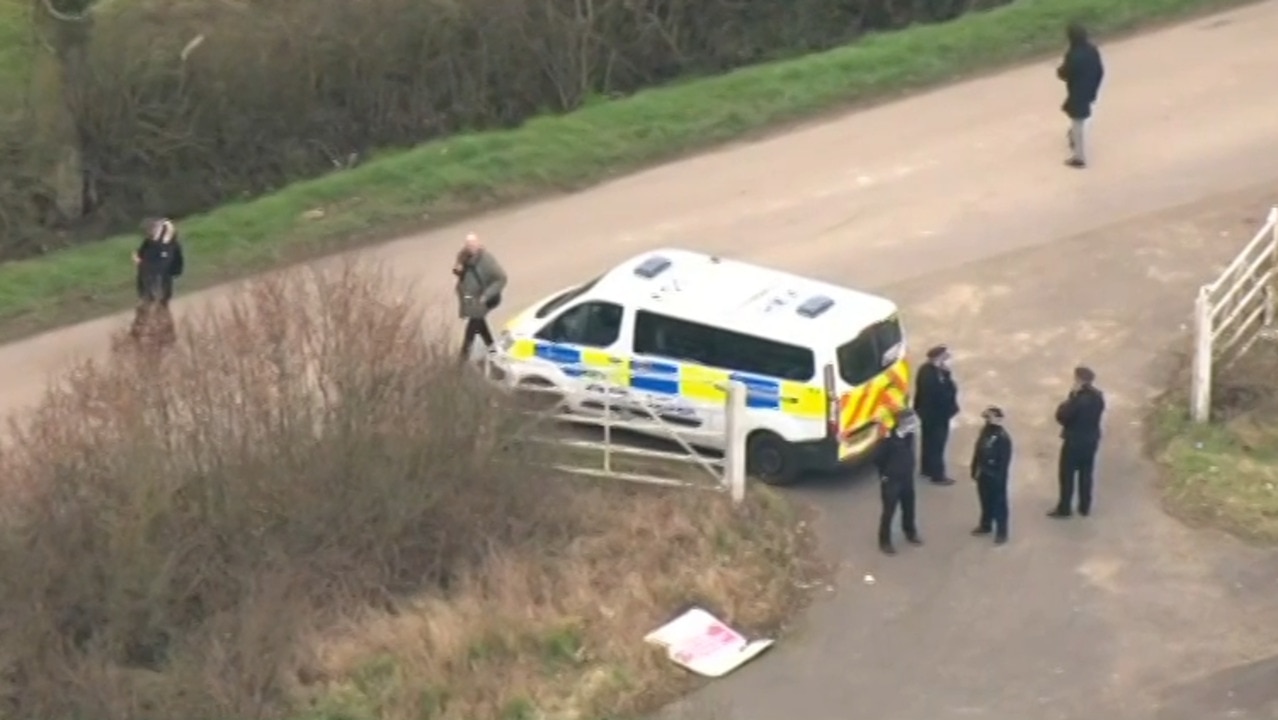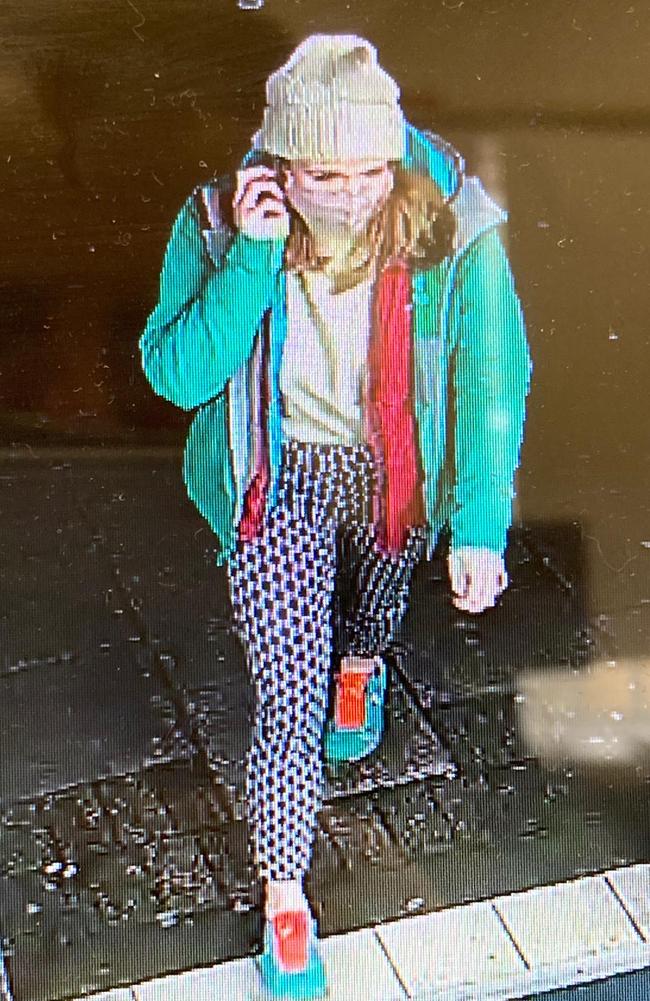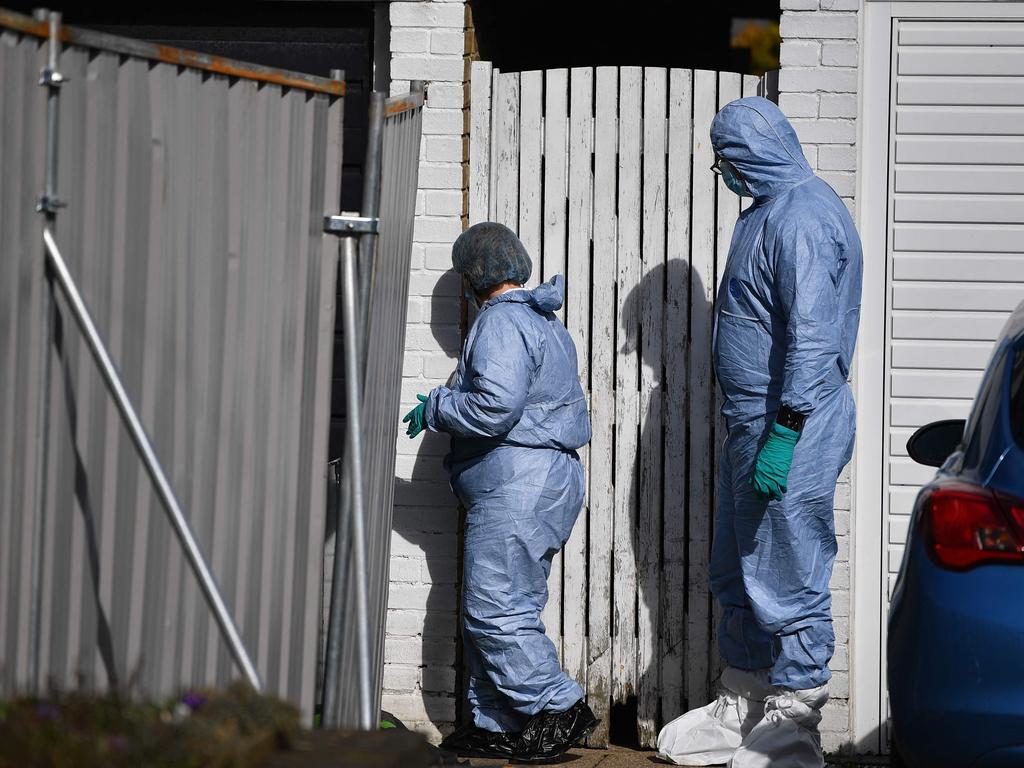Sarah Everard missing: Why a curfew for men isn’t a bad idea
In the wake of Sarah Everard’s shocking disappearance, some are calling for a curfew for men. And there’s a strong argument for it.

OPINION
As the days grew shorter in locked down London this winter, it dawned on me that I could no longer take my daily after-work walk in the park.
I understood this as I took a solo trip outside in the gathering darkness and saw a man sitting silently on a bench I was about to pass. There was no one else in sight.
Every woman will recognise the feeling I had as I picked up my pace, heart clenching, hoping fiercely that nothing would happen. While this man — and most others — wasn’t a threat, being out alone after dark is a risk we are taught early that we shouldn’t take.
In the wake of Sarah Everard’s shocking disappearance on a busy road less than three kilometres from my home in south London, my Twitter feed has been awash with grief and fury from women, many recounting their experiences of harassment, stalking and assault while simply walking down the street.

RELATED: Chilling new theory about missing woman
The response from London’s Metropolitan Police after the 33-year-old vanished while walking from Clapham to Brixton at 9.30pm on March 3 was to tell women in the area not to go out alone.
Their advice is infuriating and the latest, exhausting example of blaming women when they are attacked, as we spend our lives making calculations about how to avoid rape or murder while simply existing in public.
Instead, some have asked, why not enforce an after-dark curfew on men?
Perhaps that seems unfair, a punishment inflicted on all men just for their gender, for the actions of a few. But women have been living with that exact restriction, an infantilising ban on venturing out alone, for our whole lives.

Assaults on both women and men are overwhelmingly carried out by men.
In Australia, the rate of police-recorded sexual assault was almost seven times as high for women as men in 2018, and 97% of sexual assault offenders in 2018–19 were male.
A report from UN Women UK yesterday found that 97% of 18-24-year-old women had been sexually harassed in public.
It came as police found human remains in a woodland in Kent and a member of the Met’s elite diplomatic protection branch was detained on suspicion of Sarah’s abduction and murder, amid claims he may have used his ID card to lure her into her car.
RELATED: Morrison’s ‘as a father’ comment is a problem
I was walking home one night in Brixton, not far from where Sarah was taken (panicky, looking behind me, as we always are) when three men circled round me, one of them groped me, and they tried to pull me into a car. A passer by came along thank god. The police did nothing.
— Jenny Stevens (@jenny_stevens) March 11, 2021
I got a male friend to walk me home late one night. He sexually assaulted me when we got in. Women’s decisions aren’t the problem.
— Dr Jen Wills Lamacq (@JenWillsLamacq) March 10, 2021
Advice to all men to stay inside until the suspect is apprehended. “Don’t go out,especially at night. Someone might think you are a murdererâ€. All males to stay indoors, as gangs of vigilante women roam the street â€Be careful. Any one of you murdering rapists could get arrestedâ€
— Ashley McGuire (@AshleyMcGuire_) March 10, 2021
UK Prime Minister Boris Johnson said on Thursday that he was “shocked and deeply saddened” by the case, while Home Secretary Priti Patel said the stories shared by women online were “powerful because each and every woman can relate”.
She said women “should feel safe to walk on our streets without fear of harassment or violence.”
Yet this has been said time and again, in the UK, Australia and around the world. Women continue to face a constant threat of violence that crushes our right to independent lives — one that has only worsened during the pandemic.
London mayoral candidate Shaun Bailey’s response that, “As a father and husband it breaks me to think that my wife and daughter have to live in fear in their own city”, echoed Prime Minister Scott Morrison’s “as a father” remark about Brittany Higgins.
WHAT YOU SAY: As a father and a husband...
— CrimeGirl (@CrimeGirI) March 10, 2021
WHAT WE HEAR: Before I ‘got’ a woman of my own, women had no value to me
A tweet from another man asking what he could do to make women feel safer went viral. It was the response the women I knew wanted to hear.
I live less than five minutes from where Sarah Everard went missing. Everyone is on high alert. Aside from giving as much space as possible on quieter streets and keeping face visible, is there anything else men can reasonably do to reduce the anxiety/spook factor?
— Stuart Edwards (@StuartEdwards) March 9, 2021
During the Yorkshire Ripper’s rampage in the 1970s, women who had been warned to cover up and not talk to strange men organised the UK’s first Reclaim the Night marches. They carried placards reading “No curfew on women — curfew on men” as they fought against having their freedom curtailed.
Little has changed. When Eurydice Dixon was killed in Melbourne’s Princes Park in 2018, there was an outpouring of anger at the police response that people needed to “take responsibility” for their own safety.
Too much to express on this. But yes, I used to run in the dark (early morning) and stopped after two drunk guys tried to chase me down once. Decided it wasn’t worth it and would only run when it’s light out & people about. We constantly modify our behaviour & it’s exhausting. https://t.co/rhTyVlNJ41
— Prof. Devi Sridhar (@devisridhar) March 11, 2021
I love walking. I dream of walking through forests at night. Like how peaceful it would be. Or exploring train tracks, those strange in-between places in big cities. I’d love to walk along the Thames at night, feeling the pulse of the sleeping city. I’d love to do that.
— Siobhán McSweeney (@siobhni) March 10, 2021
Women are still having to explain that it’s not us who need to adapt our behaviour. That even as we carry keys in our fists, learn self defence, avoid dark and quiet streets, take taxis — murders continue.
I remember being screamed at by a group of men in broad daylight all the way down a street as I walked to a friend’s house, arriving shaking and sweating from trying to outpace them. My sister was flashed in her school uniform on a busy road.
In 2015, after the killing of Masa Vukotic in a Melbourne park in daylight, police suggested women “shouldn’t be alone in parks”.
If I see one more comment on Sarah Everard making a "poor decision" to walk home alone at night, I might scream. I was attacked in broad daylight on a bright sunny morning, yards from my front door. Stop focusing on women's choices and start focusing on the men that attack us.
— Georgia O'Brien (@georgiacobrien) March 10, 2021
This thing about women not going out in the dark to 'keep safe'. I was once flashed at at 9am. Another time I was sexually assaulted in a busy shopping centre at lunchtime. And beaten up by a man I told to fuck off when he harassed me on my way home from a teatime walk. Go figure
— Julie Bindel (@bindelj) March 10, 2021
Most victims of assault are attacked by someone they know. As many have pointed out, we would have to stop having partners, sons, male friends and colleagues to avoid all risk. We would need to stop doing everything.
If I were to compile a list of ‘women don’t’ advice based on the femicide census:
— Karen Ingala Smith (@K_IngalaSmith) March 11, 2021
- women, don’t have male partners
- women, don’t leave male partners
- women, don’t go on dates with men
- women, don’t talk to men at bus stops
- women, don’t have sons
-women, don’t have grandsons
Dear men. Just not being violent towards women isn’t good enough. You need to be Anti Violence Against Women. Don’t give me any of this Not All Men bullshit. It’s our problem and we need to fix it.
— stuart braithwaite (@plasmatron) March 11, 2021
Sarah was walking home from meeting a friend on the well-lit South Circular — one of London’s busiest roads. At a time when UK residents have been told to avoid public transport and cabs because of COVID-19, she probably saw this as a responsible choice.
This weekend, the latest Reclaim These Streets vigil will take place at Clapham Common, near where Sarah disappeared. “This is a vigil for Sarah, but also for all women who feel unsafe,” said the organisers.
Coverage this morn of the appalling Sarah Everard case misses the point, with emphasis on how rare abduction and murder is. The outcry it’s initiated is about women being in fear of harassment and assault while out after dark. And that, dismally, is not rare. The fear is endemic.
— Jay Rayner (@jayrayner1) March 11, 2021
We know it's 'not all men' but we absolutely don't know which men it is.
— Emma Burnell 💙 (@EmmaBurnell_) March 10, 2021
Relentlessly warning women to be alert to danger, or adding a few streetlights, is not the answer to preventing violence. We need real, deep change.
We need a world where International Women’s Day is not just tokenistic, where women do not need to fear sexual assault in Parliament, and female MPs don’t face bullying from self-styled “big swinging dicks”.
It’s about educating men and boys to see women as equals; changing how we respond and place blame; and building a culture that creates equal rights for women in the workplace, the family and society.
Either that, or a curfew for men.




